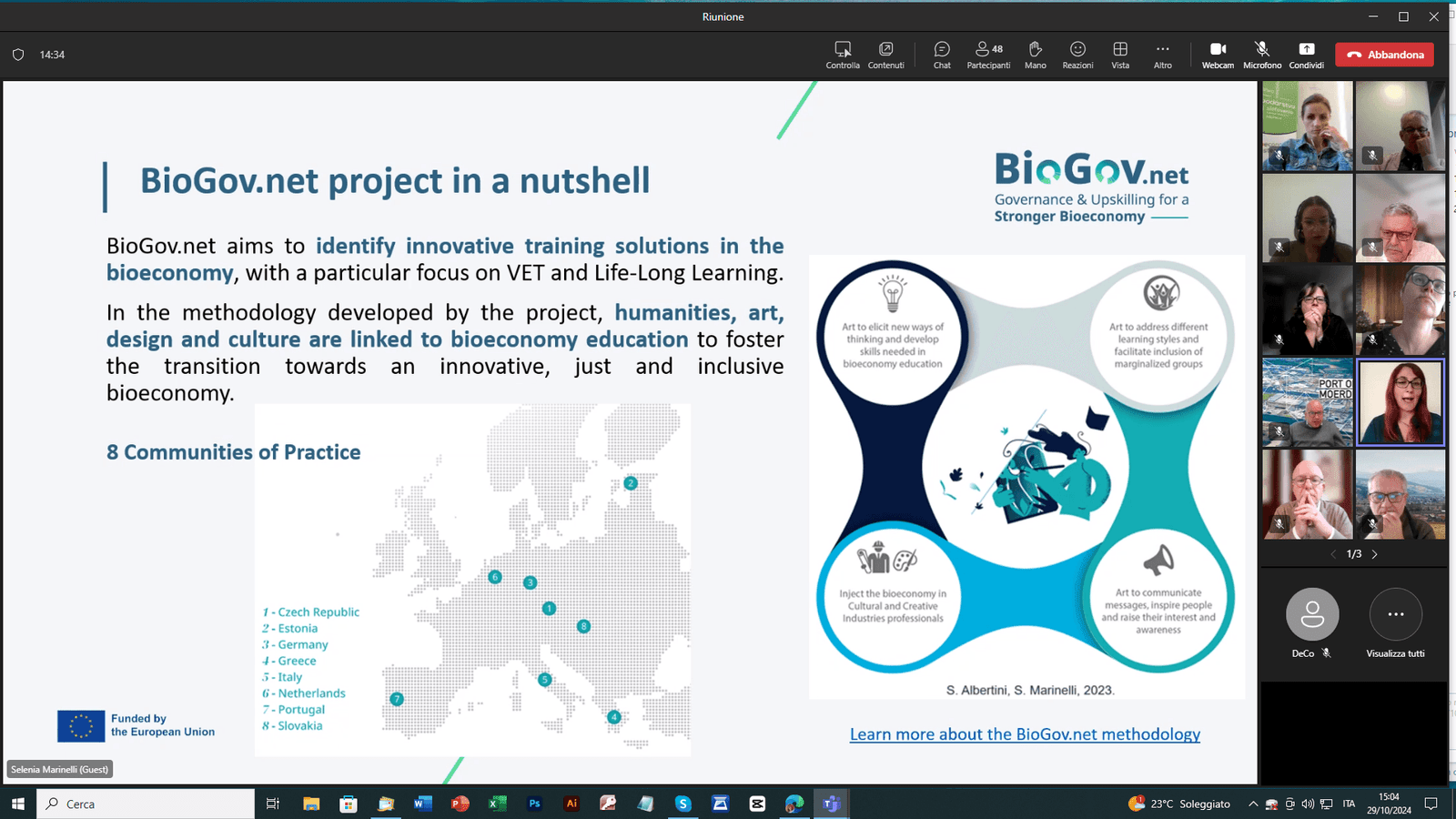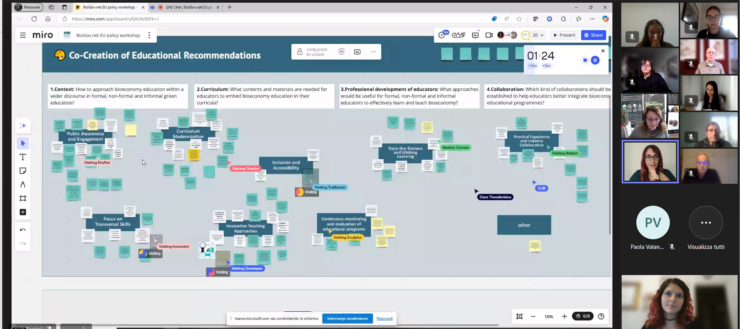This workshop was organised by GenB project “What’s Next for Bioeconomy Education? Pre-University education and communication perspectives” was organised as part of the workshops series whose aim was to provide insights and recommendations from EU funded projects, towards the bioeconomy strategy revision.
After presenting key case studies and good practices, along with education and policy recommendations from leading EU-funded bioeconomy projects — such as GenB, BioBeo, BIOVOICES, Allthings.bioPRO, and Scientix — participants engaged in an interactive discussion and collaborative co-creation session.
The session, divided into two parts, using a MIRO board pre-filled with insights from the opening inspirational case studies. One part focused on developing educational recommendations for both formal, non-formal and informal education, emphasizing awareness and learning strategies to be adopted by the educational community. The second part targeted policymakers, co-creating policy recommendations for sustainable bioeconomy education governance models at the European level. This process encouraged knowledge exchange on best practices, innovative policies, and regulatory measures to enhance bioeconomy education across diverse educational settings.

The BioGov.net European policy workshop “What’s next for bioeconomy education? VET and Life-long Learning Perspectives”, held online on 29 October 2024, marked a significant milestone in the BioGov.net mission to foster collaboration for a stronger bioeconomy governance across Europe. In fact, the workshop received a huge interest, collecting 94 registrations from 28 Countries and finally bringing together 60 active participants from 34 EU projects and initiatives, representing diverse expertise and perspectives.
The event featured inspirational presentations from leading projects in bioeconomy education, each contributing to co-creating educational and policy recommendations in vocational training and life-long learning, while supporting the map/implementation of case studies and best practices in this domain. Key presentations included:
- Selenia Marinelli (FVA – New Media Research) shared insights from the regional policy workshops organized within the 8 Communities of Practice (CoPs) established by BioGov.net in targeted Countries, emphasizing the successful participatory exercise performed with CoP members to collect extensive and insightful education and policy recommendations based on the local barriers, opportunities, needs and priorities.
- Viola Pinzi (European Association for the Education of Adults) introduced the Engage4BIO Educational Guidelines, which support the development of Regional Hubs to promote bioeconomy practices.
- Nadia Sansone (Unitelma Sapienza) presented the recently concluded Circular Bricks project’s lessons learnt and innovative pedagogical materials designed for VET teachers, focusing on circular bioeconomy through a train-the-trainer approach.
- Eddy Grand-Meyer (European Schoolnet) highlighted recommendations from the Scientix initiative, a vibrant community fostering STEM education and collaboration among educators, researchers, and policymakers.
- Finally, Han van Osch (AVANS) shared takeaways from the workshop on life-long learning for bioeconomy professionals organised by the ICA Community of Practice for Bioeconomy Education (CoP Bio-Edu), on 23-24 October 2024.


The second half of the workshop actively engaged participants through an interactive session on Miro, where they collaborated to generate insightful inputs for educational and policy frameworks. Guided questions spurred rich dialogue, ensuring diverse perspectives were considered in shaping actionable recommendations.
The outcomes of these two collaborative workshops were showcased to around 100 experts in bioeconomy education participating in the high-level event “Bioeconomy education to enable the transition to a competitive, regenerative, and fair (bio)economy. Building the next union of skills in the bioeconomy“, organized in Brussels by the European Commission’s DG Research & Innovation on 20 November 2024, towards the revision of the European Bioeconomy Strategy.

